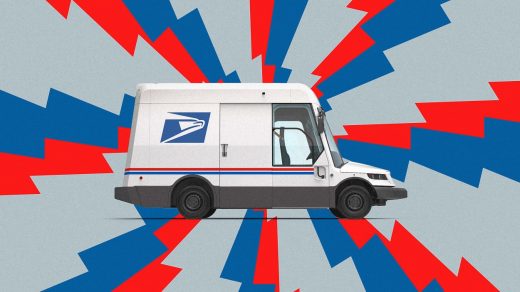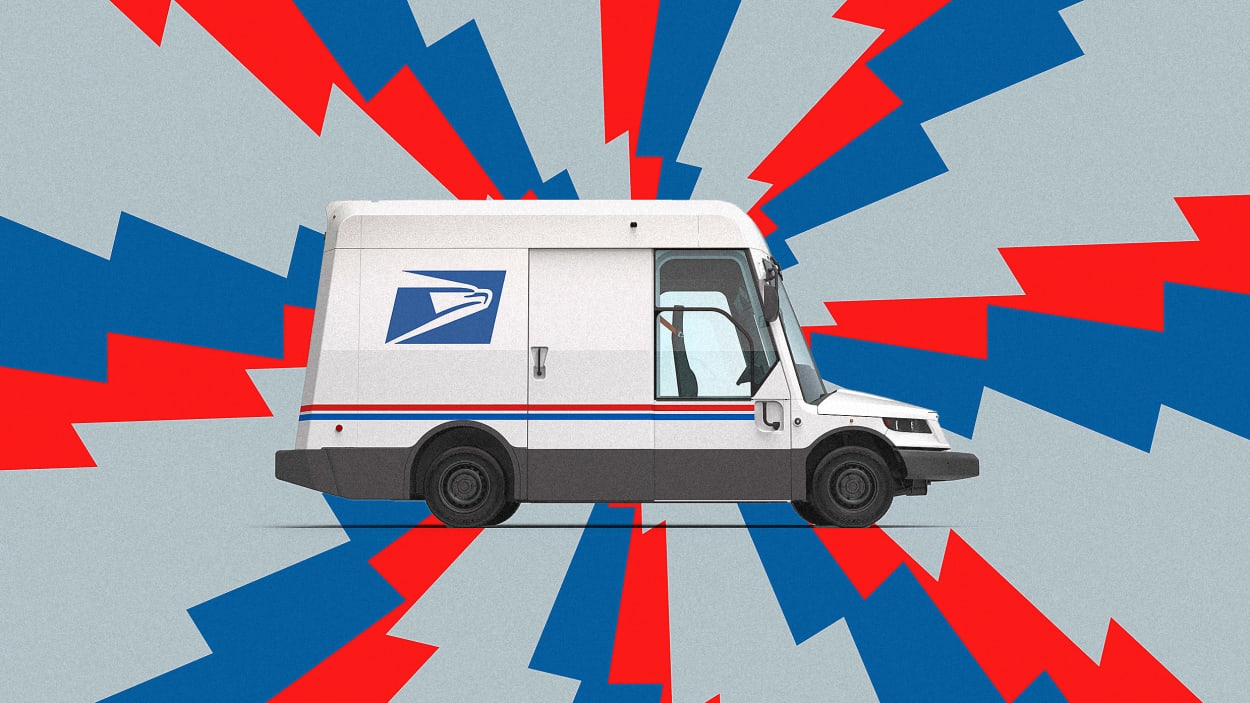USPS mail trucks are finally going electric
It makes sense for mail trucks to be electric vehicles—most travel relatively short routes each day, and they can plug in to charge at night. In France, the postal service has 40,000 electric vehicles; Germany has 20,000. But the U.S. Postal Service only has a handful, and last year, when the agency unveiled the details of its plans to replace its aging mail trucks, it only called for 10% to be electric, despite a federal push to move to zero-emission vehicles.
That plan has changed. After intense political pressure and lawsuits arguing that USPS’s plan violated environmental laws, the agency announced that it will buy 66,000 EVs over the next several years. More than three-quarters of its custom “next generation” vehicles, from the defense contractor Oshkosh, will be electric, along with nearly half of the off-the-shelf mail trucks it also plans to buy. (It will still buy fossil-fueled vehicles for long-distance deliveries between cities and states.) By 2026, it will buy only electric vehicles.
The agency had initially said that it couldn’t afford to buy many EVs, despite some external calculations that suggested the total cost would be lower than gas trucks. Electricity is cheaper than fuel and EVs also require less maintenance. But $3 billion in new funding from the Inflation Reduction Act will now help cover part of the $9.6 billion tab to make the switch, including installing new charging infrastructure.
“Ultimately, this shift will buffer us from volatile gas prices, spur the growth of clean energy jobs, and have us all breathing easier,” Adrian Martinez, a senior attorney at the nonprofit Earthjustice, one of the parties that sued the agency over environmental laws, said in a statement. “In the course of a year, we’ve gone from a USPS plan to buy trucks with the fuel economy of a late 1990s hummer to a visionary commitment to modernize mail delivery in the United States with electric trucks.”
It’s following a trend that was already happening in private delivery companies, as players like Amazon start to roll out electric vans, and FedEx has committed to buy only EVs by the end of the decade as part of a plan to become carbon neutral by 2040.
(29)



